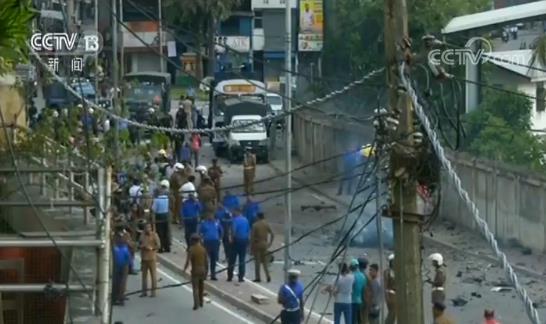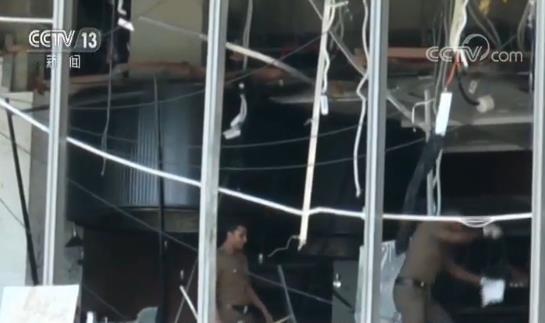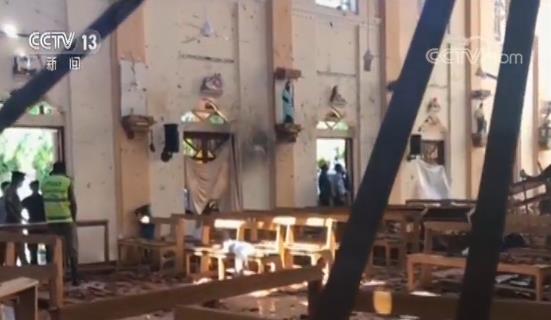Sri Lanka’s local terrorist attacks are international! Behind the early warning of terrorist attacks is the late response and lax security …?
CCTV News:According to the news released by the Sri Lankan police on April 22, the death toll caused by the explosion attacks in Sri Lanka on April 21 has risen to 290, and another 500 people have been injured. The Sri Lankan security department has arrested 24 suspects involved in the explosion. The Sri Lankan government said that most of these explosions were suicide attacks. After the attack, Sri Lankan President Sirisena issued a statement calling on the people to remain calm and cooperate with the official investigation. Sri Lankan Defense Minister Ruwan Wijewardene said that the attack that day was a "terrorist attack". Colombo reported another suspected explosion on April 22, and the ninth explosion detonated explosives for the police.

On the afternoon of April 22nd, the Sri Lankan Cabinet held a press conference on the serial bombing attack in Sri Lanka on the 21st. A spokesman for the Sri Lankan cabinet confirmed at the press conference that the Sri Lankan security department had intercepted relevant information about 10 days before the explosion. The intelligence showed that extremist organizations might launch suicide attacks on many targets in Sri Lanka, including hotels, scenic spots and churches. The Sri Lankan government apologized for failing to take timely measures to avoid this tragedy.

Li Wei, an expert on counter-terrorism: In counter-terrorism work, counter-terrorism intelligence is the most important link to prevent terrorist attacks, and it is actually the most difficult aspect to obtain intelligence. Sri Lanka actually had some relevant information ten days before this serial explosion, and we also made some analysis on this information. Personally, I think, as a relatively complete intelligence chain, it lacks unknown factors. This terrorist attack may involve too many areas, and I don’t know which buildings, sensitive buildings or dignitaries or politicians to protect, which puts forward great difficulties. What is it lacking most? Who could carry out such a terrorist attack? Without this, it will be very difficult to prevent, so such a terrorist attack also presents a situation that cannot be prevented.

Secondly, this serial bombing attack in Sri Lanka presents one of the biggest characteristics. In the past, it was a decades-long civil war between the LTTE and the Sri Lankan government, including some sporadic violent attacks since then. Its target and the way of committing crimes are very different from this serial bombing. Therefore, it is classified as Sri Lanka. This terrorist bombing is the internationalization of local terrorist attacks. Why is it international? Because of the targets it targets, the targets it attacks, and the way it commits crimes, it can be seen in some hot spots of terrorist activities outside Sri Lanka. A church in Egypt was attacked by terrorists, and so was a church in Surabaya, Indonesia. Attacks on five-star hotels, including Marriott in Pakistan, Marriott in Indonesia, Lisen Hotel in Mali and these high-end hotels in Somalia, are consistent with the extreme ideology advocated by international terrorist forces and the goal of hate conflicts they want to create, which is its most prominent feature.

The second feature, just now we heard at the press conference that NTG, an extremist organization in Sri Lanka, was behind this crime. It is certain that NTG is involved, but we should also see that another factor of the internationalization of this terrorist attack should be influenced by extremist organizations in the Middle East. Seeing some suicide bombings, this technique can be seen from outside Sri Lanka. In the process of searching the houses of these people who carried out terrorist attacks and bombings, some propaganda materials and some demagogues associated with extremist organizations in the Middle East were also found. Therefore, from this point of view, the serial terrorist attacks and bombings in Sri Lanka are definitely not only the work of local extremist organizations, but also closely related to extremist organizations abroad, especially in the Middle East. This also reflects that international counter-terrorism, especially the counter-terrorism of a country, is difficult to rely solely on the counter-terrorism of a single country. International counter-terrorism must be United, including opposing local terrorism and international terrorism, so as to curb the threat and harm posed by terrorism to human society from a larger aspect.